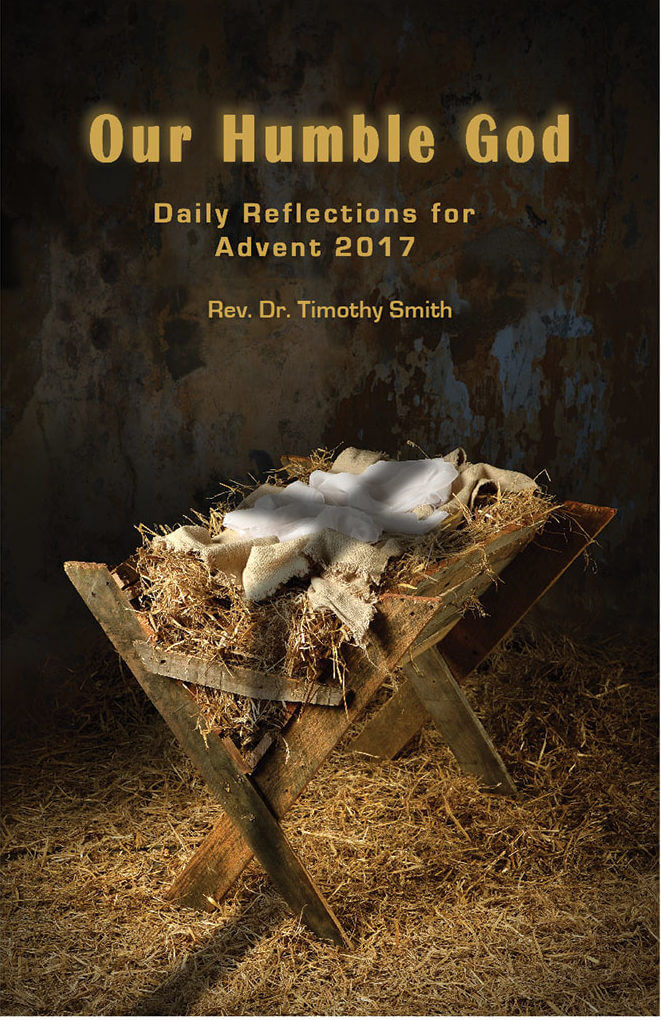PRAY:
Settle yourself into prayer and get ready to reflect on the Word of
God.
READ:
Let the same mind be in you that was in Christ Jesus, who,
though he was in the form of God, did not regard equality
with God as something to be exploited, but emptied himself,
taking the form of a slave, being born in human likeness.
And being found in human form, he humbled himself and
became obedient to the point of death — even death on a cross.
Philippians 2:5-8
Take a moment and try to imagine God! Does it help to close your eyes? How do you picture God, how do you conceive Him? Just remember that any concept we have of God is not God, because God will always be so much bigger and more wonderful! While we can love and worship God, we will never comprehend Him! God spoke through the prophet Isaiah bringing us back to the basics: “For my thoughts are not your thoughts, nor are your ways my ways, says the LORD. For as the heavens are higher than the earth, so are my ways higher than your ways and my thoughts than your thoughts” (Isaiah 55:8-9).
But God does condescend to accommodate Himself to our finite minds and limitations. Theologians are careful to distinguish between God as He is in Himself, and God as He reveals Himself to mortals. And here’s what we know about God, what we know for sure: the tiny Baby in Bethlehem’s manger is the God of heaven and earth.
Translators wrestling with today’s Scripture grapple for words to express the holy mystery of God coming down to us at Christmas. They labor over the Greek word kenosis so that it is variously translated as: “emptied himself” (New Revised Standard), “made himself of no reputation” (King James), “made himself nothing” (New International Version), “laid aside his privileges” (New American Standard Bible), and “set aside the privileges of deity” (The Message). You sense the translators’ challenge to communicate the wonder! How does one grasp the mystery of God’s humble love plunging 17 Him down into the depths of humanity!
The context of today’s text is important for our understanding of the kenosis, God’s “emptying himself”, which Paul describes as “taking the form of a slave” and “being born in human likeness.” Saint Augustine explained it like this: “He put on what he was not, without losing what he was.” (Sermons, 261,6) Thomas Aquinas read this as Christ “emptied Himself, not by putting off His divine nature, but by assuming human nature.” (Paul’s Letter to the Philippians) Concerning God emptying Himself, J. I. Packer wrote:
“We now see what it meant for the Son of God to empty himself and become poor. It meant a laying aside of glory (the real kenosis); a voluntary restraint of power; an acceptance of hardship, isolation, illtreatment, malice and understanding; finally, a death that involved such agony – spiritual even more than physical – that his mind nearly broke under the prospect of it. It meant love to the uttermost for unlovely human beings, that they through his poverty might become rich.” (Knowing God)
Incredibly, although Jesus was fully God, He did not insist on being treated as such. Out of His love for us He freely let go divine privilege, even to the point of dying for us as a guilty transgressor. “Far from imperiling the Godhead of Christ, the kenosis of incarnation culminating in the cross is the most powerful act of Godhead, even more powerful than the creation of the world. (Richard Floyd, When I Survey the Wondrous Cross) The cradle and the cross are God acting in character!
The apostle Paul said that in the incarnate, human Christ “the whole fullness of deity dwells bodily” (Colossian 2:9). The Babe in the manger is really God! God emptying Himself was not the loss of His deity, but the clearest, most eloquent expression of His deity. God was never acting more like God than in this moment! This is God! His cradle and His cross reveal it: God would rather die than live without you!
There is a widely recognized principle that people become like the god they worship. We see this principle played out in history as well as in current events. The implications of this principle are obvious for any who follow Christ! Paul says it so well: “Let the same mind be in you that was in Christ Jesus.”
REFLECT:
- What does it say about God’s humility and self-giving that He created us free to love or not to love Him?
- How might you sense the Spirit of Christ calling you to make yourself vulnerable in a relationship? How might you take a risk for the sake of love to reach out to another?
“He was not now God minus some elements of his deity, but God plus all that he had made his own by taking manhood to himself. He who made man was now learning what it felt like to be man.” J. I. Packer, Knowing God



